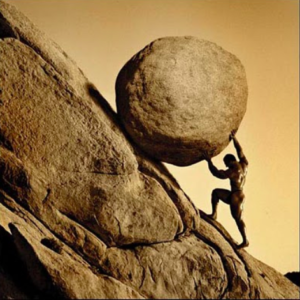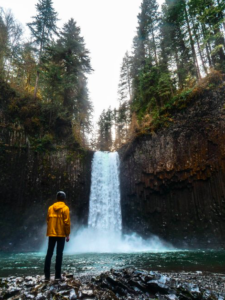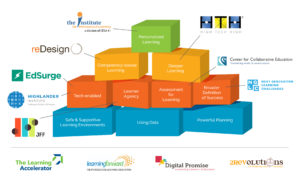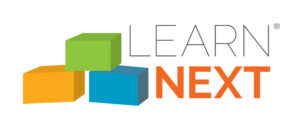At 2Revolutions, we have been at work for the past decade helping to support the development of schools and systems that are better able to meet the needs of all kids and prepare them for a rapidly changing society. Our work is directly with the adults in the system- teachers, principals and systems leaders- to help them define the future they want for kids; redesign instruction, assessment and culture to realize that vision; and then implement these practices at scale. Each year, we work with thousands of educators across the country. One of the key tricks to making these practices spread (and therefore last) is figuring out how to build authentic buy-in among educators.
Over this same period of time, we, like all of you, have had a good vantage point on a parade of hyphenated learning approaches come and go, from e-learning to hybrid learning to outcomes-based education; the hyperbolic promises of the standards movement, big data and technology. Well, the revolution was not televised because it hasn’t happened. Not yet, at least, and certainly not at scale.
And, still, we all keep pushing, in our own ways- some days more Sisyphus and other days more Hereclitus.
Perhaps it’s because somewhere along the way, I shifted from educator, leader and advocate, to all of those roles plus, the most important role of all- consumer- with my four kids making their way through the public schools. I’m not sure what it is, but it takes a lot more for me to get excited about efforts to transform school.
And, now I’m sensing kinetic energy in a new effort called Learn Next that 2Revolutions and eleven other phenomenal partners launched a few weeks ago.
Learn Next is a large-scale effort to make available free, high-quality professional learning resources to help educators gain the knowledge and skills they need to transform instruction and assessment. Learn Next was created to allow educators to build their capacity at their own pace and choose where they begin their journey.
There is real potential of the effort to be leveraged by ready districts and schools, by educational leaders who have needed the “how” to anchor their ever more compelling “why”. Here are some reasons why I’m so excited:
- Knowledge should be free. In this era, rather than keeping the knowledge behind a paywall, let’s democratize it and make high value learning materials free. All of this Learn Next content is free and open. We developed it with philanthropic support from the Chan Zuckerberg Initiative, and we are committed to keeping it open into perpetuity. As a mission-driven, for-profit organization, we appreciate the tension between free, freemium and pay; we and our partners in this effort strongly believe that this content should be fully accessible to remove any barrier to educators.
- The market is filled with learning objects, not learning experiences. While many of those objects are of quality, we often hear from educators that given the amount of resources it is overwhelming. When we dig deeper in these conversations, there are questions around how do I efficiently find what I need and what’s of value? There are a growing number of rich sites that provide high value learning objects, curating for value and efficiency, and we applaud efforts like Students at the Center Hub, Edutopia and the Learning Commons. Another big challenge that we hear is the ability to leverage these objects to drive shifted practice. Learn Next has sought to develop scaffolded learning experiences through both playlists and courses which by design are intended to develop knowledge and skills for educators to apply in their classroom.
- Where am I, and how can I grow? A key differentiating factor with Learn Next is that all of the learning experiences (playlists and courses) are anchored to a diagnostic learning progression. The learning progression provides a competency statement and then a user can self assess knowledge and skills against “I can statements”. Click here to see an example of a progression. Educator learning needs to be anchored to something concrete, and provide an opportunity for demonstrable growth. These learning progressions provide an individual teacher or an instructional coach with a tool from which to build a learning plan.
- It’s 2018, everyone has a platform. Rather than hold people hostage in one online environment, Learn Next understands that people work in a range of different online spaces. Therefore, in a desire to support greater interoperability, the learning experiences are findable through a growing number of websites. Also, all of the experiences have been developed to enable folks to “grab and go”- work in the Learn Next platform InspirED, or download all of the learning experiences easily for use in the online environment of your choice.
There are some exciting stories emerging in the early use of these Learn Next experiences- from helping to support the development of an educator badging system in a large, urban district to providing rich learning resources for a new M.Ed in Competency-based Education; to supporting the capacity building for districts all over the country actively designing their future of learning in partnership with 2Revolutions or a range of other partners.
Check out Learn Next and explore how the learning experiences can accelerate your team’s transition to your Future of Learning.
We are looking for a few great districts… In the coming few weeks, the Learn Next partners are going to announce a new grant opportunity for districts to compete for opportunities to rethink educator learning through Learn Next…stay tuned!
Adam Rubin is the founder and partner at 2Revolutions. Adam has spent over two decades catalyzing change through the design and launch of social enterprises across the education and community development sectors. He started 2Revolutions to feed this love, and to reinforce a belief that two critical levers we can pull are the birth and scaling of innovative ventures as a way to affect real change. At 2Rev, Adam is able to feed his love of both systems change and practice innovation.
This article was originally posted in 2Revolutions on October 12, 2018
Image credits: Gerard Van der Leun (Flicker; Creative Commons 2.0) and David Kovalenko (Unsplash)



